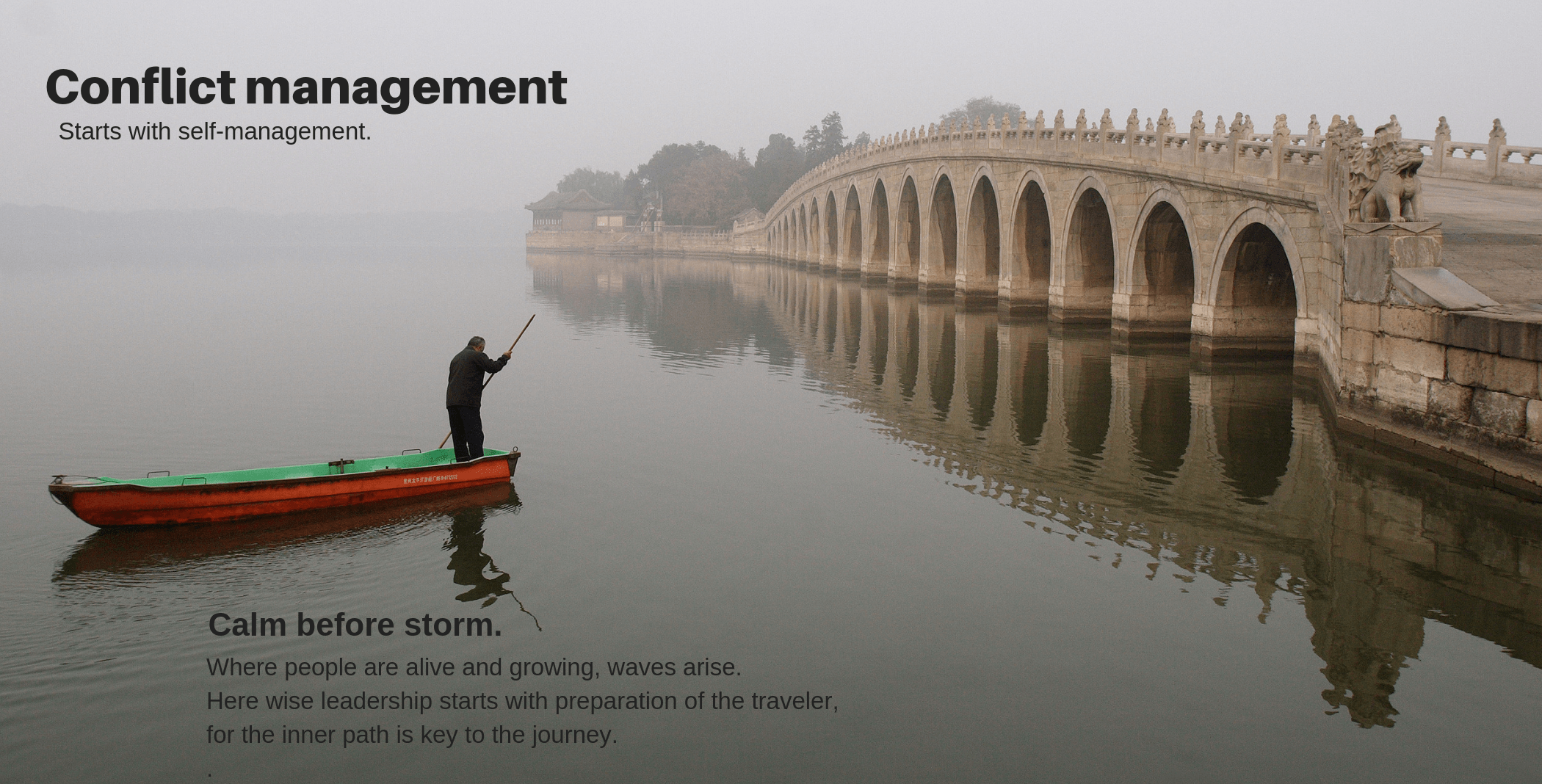 Try Using Directing More
Try Using Directing More 

You scored lower in Directing in Calm settings than other styles, so you probably rarely use this style. This helps you avoid possible weaknesses of the Directing style, such as being inflexible or insensitive to relationships.
But Directing also has important strengths you may be missing out on. You'll be most effective in conflict if you are good at all five styles. So increasing your use of Directing might be beneficial, especially if the gap between your Directing score and your highest style in Calm is 3 or more.
In Directing you focus on your own wishes or duties. You ignore, while using this style, the wishes and feelings of others. Although it has obvious limits, Directing is necessary sometimes. A ship's captain in rough seas, an emergency room physician, the leader of a youth group on a field trip, the parent of a child running towards the street - all serve others best by being strongly in charge. They should not worry too much, for the moment, about the feelings and preferences of others.
When to Use Directing. Almost everyone needs to use Directing occasionally. It is valuable for:
- Asserting yourself and being heard;
- Setting limits or boundaries when others are acting inappropriately and not responsive to requests for cooperation;
- Taking a stand on principles that are being violated or defending others in need of protection.
- Exercising strong leadership and authority, giving instructions, setting limits, giving rapid coordination, without being distracted by those who may disagree.
- Emergency management. When lives and property depend on fast, decisive action, Directing is a gift. For this reason, police, military, and emergency services operate with Directing as the primary style of leadership.
How to Strengthen Directing. Experiment with strategies that will make it easier to use Directing when needed:
- Use purpose statements, which are concise statements of your priorities or intentions like "My purpose is...." or "What I'm trying to accomplish is...." When you have a clear, conscious focus on your purpose, you can more easily let others know what is required without being over-bearing.
- Focus more on your duties and roles in conflicts than you have in the past, and a little less on feelings and relationships. All of us face situations, especially in leadership, when our role requires us to do or say things that make certain people unhappy in order to avoid damage or unfairness to others.
- Recognize phases. We can't be all things all the time. Some moments require toughness; others generosity. With children, for example, adults know that sometimes we have to be strict. We tell a child to turn off the computer when it it late, and we shrug at the stormy response. But on a weekend, we may let the child have hours of screentime. When we have a clear understanding of where and how we seek to please others or work on relationships, it is easier to be firm when necessary.
- Pay attention to your physical presence. Strong body language and tone of voice help in pulling off a Directing response. If this is a challenge for you, ask someone you trust to give you feedback on how to strengthen your physical presence. Roleplay some conversations where you need to be strong.
- Careful with threats. The ability to threaten consequences is an important resource for Directing in some settings. But size threats carefully. Too small and they have no impact. Too big and you'll hesitate to use them or worse, fail to act on them once made. Think through an escalating series of threats and always choose the smallest capable of getting the results you seek.
Ratchet up use of Directing slowly and see how it feels. The styles you already use are valuable - keep using them! But experiment with Directing so you can use it when you must act decisively, take charge, coordinate, do difficult work, and persist in the face of big challenges or difficult people.



 Need assistance? Email center@riverhouseepress.com with a copy of the login instructions you received and a brief description of what is happening. We'll reply in one business day-usually less.
Need assistance? Email center@riverhouseepress.com with a copy of the login instructions you received and a brief description of what is happening. We'll reply in one business day-usually less. 